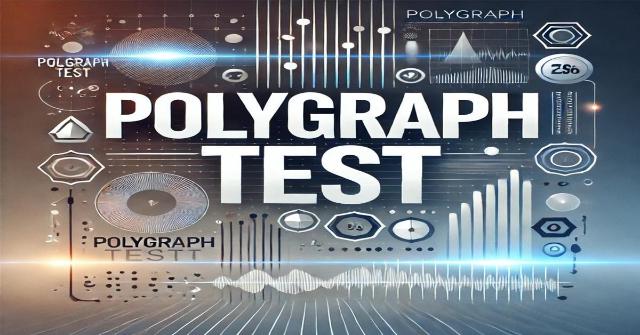Why Polygraph Testing Is Essential for Modern Security Protocols
Security in the current rapidly changing world has to be a culture of trust and accountability. Businesses and other companies have a never-ending quest for the most efficient ways of enforcement, threat identification, and the formation of coherent security. This is where the polygraph test comes in handy to solve the problem. Due to its effectiveness, the method of checking the subject’s honesty based on rapid physiological reactions has become commonplace in security systems all over the world.
In this article, we’ll explore how the polygraph test contributes to safeguarding modern security systems and why it holds an indispensable place in today’s high-stakes scenarios.
A Brief History of Polygraph Testing
Polygraph trying has a fascinating history that dates back to early lie detection strategies. Initially, techniques were largely speculative, relying on behavioral cues like eye contact or fearful gestures. However, the development of the polygraph in the early 20th century modified the game.
Invented by John Larson in 1921, the contemporary polygraph measures physiological signs such as heart rate, blood pressure, and breathing. Over the years, this technology has evolved to include advanced sensors and software, making the polygraph one of the most sophisticated pieces of equipment for detecting deception.
Today, polygraph testing is a reputable technique not only for crook investigations but also for preventive safety features in various industries.
The Role of Polygraph Testing in Security
One of the number one uses of the polygraph test is in pre-employment screening and periodic opinions, in particular in sectors where safety is essential. Government organizations, private groups, and law enforcement use it to ensure that people managing touchy information are truthful.
Enhancing Investigations
In criminal justice, polygraph assessments are employed to corroborate evidence and examine the reliability of witnesses or suspects. While no longer constantly admissible in courtrooms, they offer treasured insights that guide investigations on the right path.
Safeguarding Organizational Integrity
In offices, polygraph assessments assist in maintaining an ethical lifestyle by way of identifying misconduct or potential inner threats. This has been demonstrated to be specifically beneficial in sectors like finance, healthcare, and cybersecurity, where lapses in integrity can have intense effects.
Applications Across Industries
Governments worldwide rely on polygraph exams for vetting personnel in sensitive positions, which include intelligence corporations or the army. These checks are crucial in identifying risks and preserving countrywide security.
From insider threats to fraud prevention, groups use polygraphs as part of their safety protocols to defend intellectual belongings and sensitive statistics.
Law enforcement groups use polygraph assessments not only to evaluate suspects but also to aid parole choices and display sex offenders, ensuring public protection.
Ethical Considerations in Polygraph Testing
As with any effective device, using polygraph checking out is followed by means of moral worries. Critics argue that the pressure of the test should result in false positives or induce strain-related responses that skew results.
To mitigate such concerns, polygraph checks need to be administered via licensed specialists who follow strict ethical recommendations. Transparent verbal exchange with check topics is critical to holding fairness.
Moreover, it’s critical to remember that polygraph testing isn't a standalone answer, but a part of a complete security approach. Combined with historical past checks and psychological checks, it guarantees a balanced approach to reality verification.
Challenges in Polygraph Testing
While the polygraph test gives significant blessings, it’s no longer without barriers. Factors along with medical conditions, tension, or anxiety can occasionally affect the results. Additionally, people skilled in governing their physiological responses might also try to lie to the check.
To cope with these issues, polygraph generation keeps adapting. Integration with AI and gadget-getting-to-know algorithms is being explored to decorate accuracy and reduce the margin of error.
The Future of Polygraph Testing
The future of polygraph testing is promising, with ongoing improvements designed to enhance its reliability and accessibility. Here’s what the destiny holds:
AI-Powered Analysis: Artificial intelligence is ready to revolutionize polygraph testing by way of automating result interpretations and minimizing human mistakes.
Remote Testing: Advances in sensor generation may additionally quickly permit far-flung polygraph assessments, making the manner extra handy and cost-powerful.
Enhanced Accuracy: With continuous research, the polygraph check should grow to be even more specific, addressing cutting-edge barriers and building greater consideration in its findings.
As protection challenges grow in complexity, the polygraph to take a look at will stay a valuable asset in tackling emerging threats.
Conclusion
The polygraph check has developed from a fundamental lie detection device into an advanced safety device that spans diverse industries. Its potential to stumble on deception by way of studying physiological responses has made it essential in contemporary safety protocols. From protecting countrywide security to preserving company integrity, the polygraph takes a look at continues to demonstrate its value.

